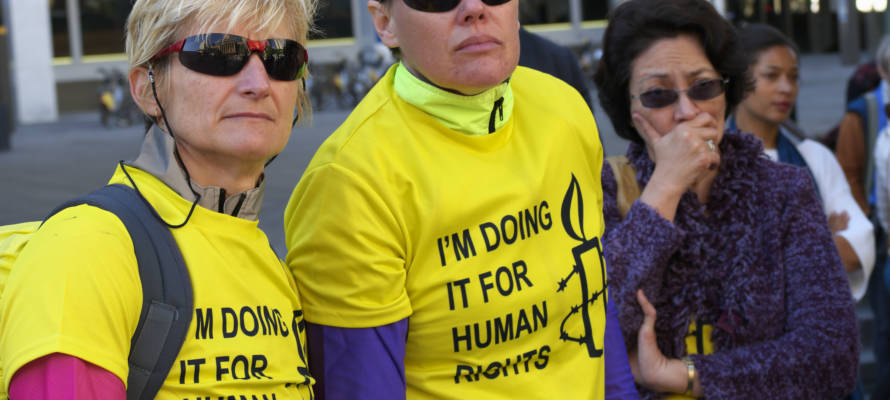While Amnesty International is obsessed with promoting the myth that Israel discriminates against Arabs, the organization’s employees say it perpetrates discrimination against its own staff.
By Yakir Benzion, United With Israel
Amnesty International, which has spent decades accusing Israel of discrimination against Arabs, was itself recently accused of “systematic bias” against its own employees.
An internal review of Amnesty International’s headquarters in England has exposed “incidents of overt racism including senior staff using the N-word,” The Guardian reported Tuesday.
The revelation of the abusive behavior in the organization that claims to protect human rights came as eight current and former Amnesty employees publicized their own experiences of abuse on the job and called on senior officials to resign.
“We joined Amnesty hoping to campaign against human rights abuses but were instead let down through realizing that the organization actually helped perpetuate them,” said employee Katherine Odukoya.
The review revealed that senior staff used “the N-word and P-word,” with the latter referring to a common British slur for people of Pakistani descent, and anybody who complained was told they were being “over-sensitive.”
The report by the consulting firm Howlett Brown concluded that Amnesty was rife with inequitable treatment based on ethnicity.
In an e-mail sent last June to staff, Amnesty management admitted the organization’s headquarters in London was guilty of “bias and insensitivity” towards its own employees.
Amnesty management issued a statement saying it was “sobered” by the findings, adding: “It is a timely reminder that discrimination, racism and anti-Black racism exist in our organization.”
The report dealt with Amnesty’s headquarters, but staff at the UK office, also based in London, told The Guardian they received the same abuse as at the international office.
Former Amnesty employee Kieran Aldred said Amnesty’s UK leadership consistently overlooked employees from ethnic groups and promoted “high-earning white senior leaders.”
“Working for AIUK destroyed my self-confidence, my belief in my capabilities. I didn’t think I was skilled enough to do my job, that any organization would ever hire me, let alone promote me, and I suffered from ongoing depression and anxiety,” said Aldred.
Amnesty UK director Kate Allen issued a statement apologizing, saying: “We are reckoning with the uncomfortable fact that we have not been good enough.”
In 2019, an independent review issued a report revealing that Amnesty International had a “toxic” working environment. The review of Amnesty’s internal workings was commissioned after two staff members committed suicide the year before.
The report revealed that widespread bullying, public humiliation, discrimination and other abuses of power were plaguing the organization, and the severe lack of trust in senior management “threatened Amnesty’s credibility as a human rights champion.”
“As organizational rifts and evidence of nepotism and hypocrisy become public knowledge they will be used by government and other opponents of Amnesty’s work to undercut or dismiss Amnesty’s advocacy around the world, fundamentally jeopardizing the organizations mission,” the 2019 report said.
